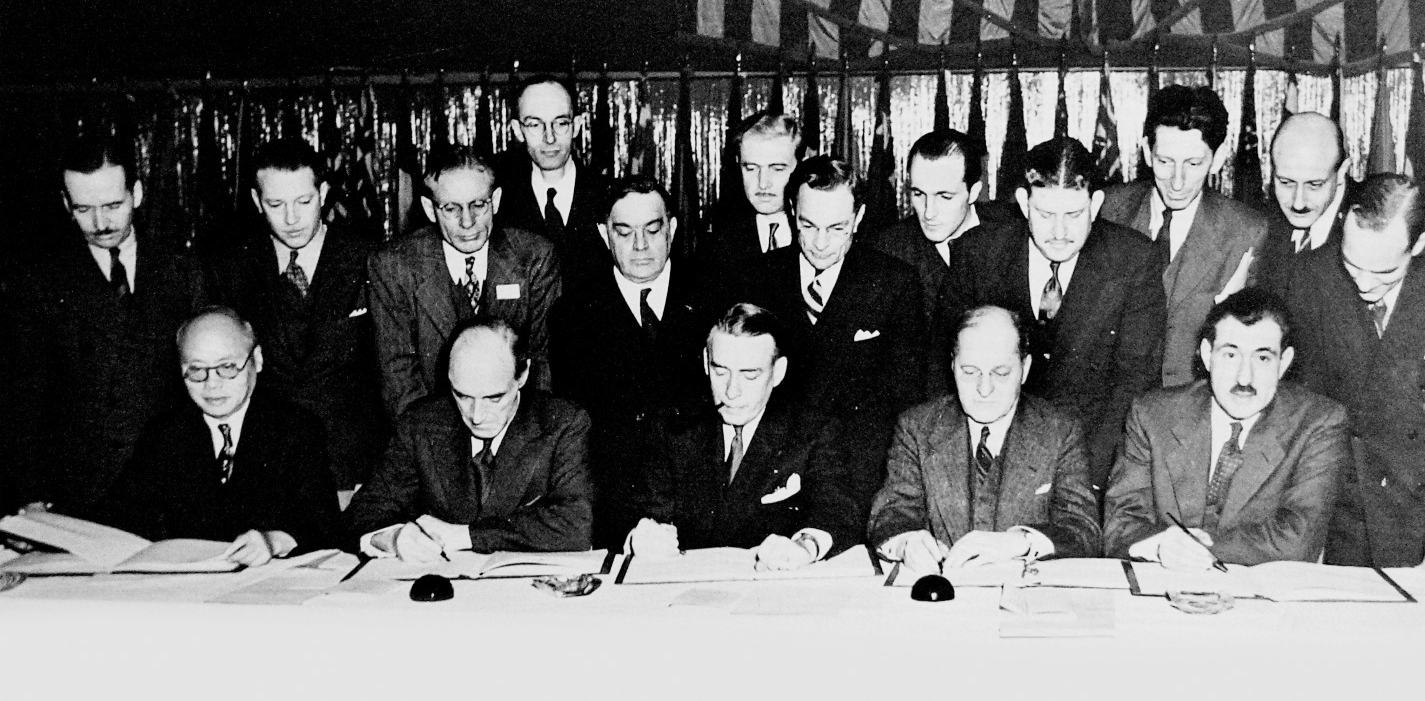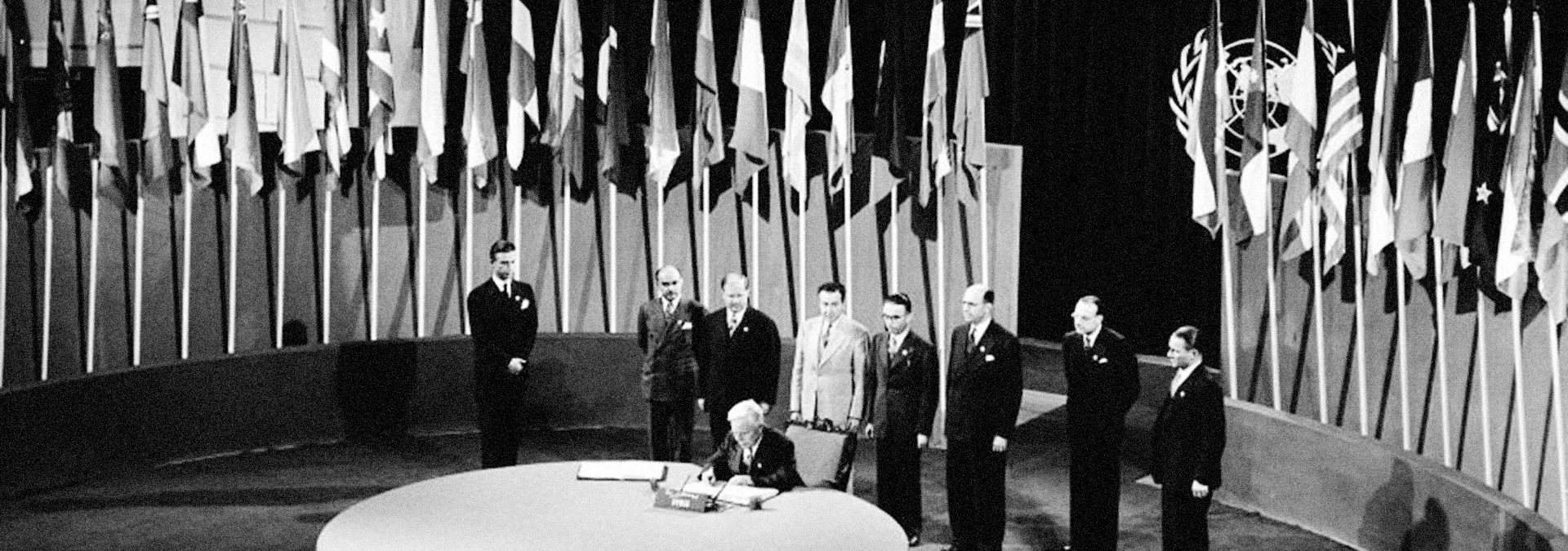ICAO and the United Nations
At the Chicago Conference, the drafters of the Convention on International Civil Aviation had anticipated the emergence of a United Nations type of post-war organization. Accordingly, they wrote into the Convention a provision covering the possibility of ICAO becoming a constituent of such organization as follows:
Article 64:
The Organization may, with respect to air matters within its competence directly affecting world security, by vote of the Assembly, enter into appropriate arrangements with any general organization set up by the nations of the world to preserve peace.
At the first ICAO Assembly, held in May 1947, Resolution A1-2 was adopted by unanimous vote of the 32 Contracting States represented at the 3rd Plenary Meeting.
This approved the agreement of relationship with the United Nations (UN) and authorized the President of the Council to sign a protocol bringing into force the agreement concerning such a relationship between the UN and ICAO.
President Edward Warner of the United States accordingly signed the protocol on 3 October, 1947, and ICAO became a UN specialized agency.

Leaders sign the Convention on International Civil Aviation, also known as the Chicago Convention, on 7 December 1944 in Chicago, USA. ICAO is one of three UN agencies, along with the ITU and UPU, whose Convention pre-dates the establishment of the United Nations. The image at top shows the signing of the original UN Charter, which took place at the San Francisco Conference in October 1945.
While ICAO remained an independent and autonomous agency after its UN system affiliation was formalized, its newfound UN status greatly benefited many of its Contracting States in the years which followed, for example through the United Nations Programme of Technical Assistance.
As a Specialized Agency of the UN, ICAO works closely with the Economic and Social Council, and has been prominently included in several Security Council meetings focused on global terrorism threats and terrorist international mobility more generally.
And in light of its technical mandate, ICAO also works closely with other UN Specialized Agencies and International Organizations such as:
- The International Telecommunications Union (ITU);
- The International Atomic Energy Agency (IAEA);
- The International Labour Organization (ILO);
- The International Maritime Organization (IMO);
- The Universal Postal Union (UPU);
- The World Meteorological Organization (WMO);
- The World Health Organization (WHO); and
- The World Tourism Organization (UNWTO).
